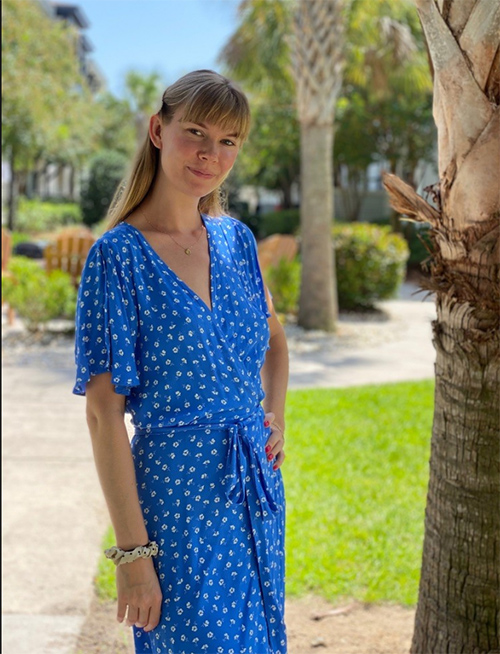
Hometown: Nashua, N.H.
Undergraduate: Temple University, BS in Neuroscience
Graduate: Drexel University College of Medicine, PhD in Pharmacology and Physiology
Can you tell me a little bit about yourself before you came to Drexel?
Prior to Drexel, I was a neuroscience major with an interest in behavioral pharmacology. Because of that interest, I found myself at the Lewis Katz School of Medicine in the Center for Substance Abuse Research (CSAR) at Temple University. I spent most of my undergraduate experience working in labs at that campus, doing behavioral pharmacology related to addiction research.
What drew you to your program, and to the College of Medicine specifically?
My initial interest in the Pharmacology and Physiology Department was partly due to their involvement in the Drug Discovery and Development program. I had always wanted to go into biopharma, and the opportunity to take classes in drug discovery was exciting to me. Additionally, a big draw for me was the work that Dr. Ole Mortensen was doing, and after meeting him I knew I wanted to work in his lab. The program ended up being an enriching experience for me, and I did end up in Dr. Mortensen’s lab.
What did a typical day in your Drexel program look like?
During the earlier years, the days were broken up by being in class or being in the lab, and then studying late into the night. During the later years, once I reached PhD candidacy, it felt more like a job, where I would dedicate my day to research activities and being in the lab. I tried to stick to a 9 a.m. to 5 p.m. schedule but spent most evenings reading or writing.
What organizations, extracurriculars, research or community service experiences were you involved in at Drexel? How did they impact your experience here?
I was a foster parent to kittens and cats via the Philadelphia Welfare Society (PAWS). That experience provided me with enrichment outside of lab and gave me purpose other than just bench work.
What have you been doing following your graduation from Drexel? How did your time here prepare you for your work today?
I am now a post-doctoral fellow in the department of neuroscience at the Medical University of South Carolina (MUSC) in Charleston. I feel that my prior department, and the mentorship I received while a graduate student there, sufficiently prepared me for life as a post-doctoral scientist. I've had a successful post-doc experience thus far and am now on the job market looking for an industry job.
What advice would you give incoming students to the Pharmacology and Physiology Department?
I always tell students not to be intimidated by new techniques in the lab. It can be daunting to optimize or to learn something new, but it's worth it to get started right away.